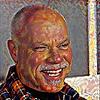Take a photo of a barcode or cover
This was one of the worst books I've ever had to read for school.
This book would be great to use with my students during a study of slavery, american history, civil rights, etc.
This fictional autobiography was famously made into a film starring Cicely Tyson in the mid-1970s, and it is the film that is best-known due to its high-profile airing on national television and Tyson's award-winning performance. The film diverges from the novel in any number of particulars but still remains true to the author's core vision, depicting, through the titular character's subjective narrative, the objective similarities that bind the eras of enslavement, Reconstruction, Jim Crow, and the civil rights movement together in a single arc.
The rambling and episodic nature of this story will almost certainly turn readers off, but it's important to keep in mind that these are the memories of a 110-year-old (albeit fictional) woman. Thus, narrative fastidiousness is devalued over the flow of Pittman's stream of consciousness. One notable and recurring instance of this is the narrator's tendency to introduce characters without backstory or explanation. Sometimes the back story becomes evident as the narrative unfolds; other times we're left to conclude that the characters do not figure prominently enough in Miss Jane's story to warrant detailed characterization.
Another point on which readers may have difficulty is with the language employed. The novel is set forth in Pittman's own voice, as dictated to her fictional biographer, and is thus rendered entirely in the vernacular. "Rhetoric" is rendered as "retrick." Articles and prepositions are dropped as a matter of course. And slang appears throughout, such as the use of the word "hyphen" to—evidently—refer to indoor running water.
Readers may also recoil at Pittman's characterization of certain historical figures. She comes to the defense of Huey P. Long but is critical of Booker T. Washington. These characterizations may rub some readers the wrong way, but it is important to bear in mind that this is a novel written by a Black American scholar who was himself raised in the deep south. It is for the reader—especially the non-Black reader—to defer judgment on such matters to the author's lifetime of experience.
I read this in hopes of finding a personal narrative for my 8th grade English students to read next year. I'm still on the fence as to whether this novel is right for that purpose, especially given some of the more mature themes presented and the unrestrained use of the N-word. But for general readers, this is a useful pre-Roots examination of the Black experience from the middle of the 19th through the middle of the 20th centuries.
The rambling and episodic nature of this story will almost certainly turn readers off, but it's important to keep in mind that these are the memories of a 110-year-old (albeit fictional) woman. Thus, narrative fastidiousness is devalued over the flow of Pittman's stream of consciousness. One notable and recurring instance of this is the narrator's tendency to introduce characters without backstory or explanation. Sometimes the back story becomes evident as the narrative unfolds; other times we're left to conclude that the characters do not figure prominently enough in Miss Jane's story to warrant detailed characterization.
Another point on which readers may have difficulty is with the language employed. The novel is set forth in Pittman's own voice, as dictated to her fictional biographer, and is thus rendered entirely in the vernacular. "Rhetoric" is rendered as "retrick." Articles and prepositions are dropped as a matter of course. And slang appears throughout, such as the use of the word "hyphen" to—evidently—refer to indoor running water.
Readers may also recoil at Pittman's characterization of certain historical figures. She comes to the defense of Huey P. Long but is critical of Booker T. Washington. These characterizations may rub some readers the wrong way, but it is important to bear in mind that this is a novel written by a Black American scholar who was himself raised in the deep south. It is for the reader—especially the non-Black reader—to defer judgment on such matters to the author's lifetime of experience.
I read this in hopes of finding a personal narrative for my 8th grade English students to read next year. I'm still on the fence as to whether this novel is right for that purpose, especially given some of the more mature themes presented and the unrestrained use of the N-word. But for general readers, this is a useful pre-Roots examination of the Black experience from the middle of the 19th through the middle of the 20th centuries.
I've never read this book not even in high school and now that I have I am so glad that I did. I've read Ernest Gaines before and he's tremendous writer. Highly recommend.
gosh, this didn't hold up very well. i remember being so moved by it when it first came out. now, i was disappointed.
challenging
emotional
hopeful
informative
inspiring
reflective
sad
medium-paced
Plot or Character Driven:
Character
Strong character development:
Yes
Loveable characters:
Yes
Diverse cast of characters:
Complicated
Flaws of characters a main focus:
No
This is my third book by Ernest J. Gaines, and it is my favorite of his so far. I remember the movie from 1971 when I was young. I plan to watch it again in the next few days. I listened to Cicely Tyson's autobiography last year, which is why I wanted to read this. Tyson plays Pittman in the movie.
The book does say it's an autobiography, but it is a work of fiction that reads like real life. Jane was born into slavery and lived for many decades more. We see the world through her eyes - what changed and what didn't. This book is just as important in 2024 because things still have not changed enough.
I listened to the audiobook narrated by the late Lynne Thigpen. She left us too soon. She narrated some other books as well.
The book does say it's an autobiography, but it is a work of fiction that reads like real life. Jane was born into slavery and lived for many decades more. We see the world through her eyes - what changed and what didn't. This book is just as important in 2024 because things still have not changed enough.
I listened to the audiobook narrated by the late Lynne Thigpen. She left us too soon. She narrated some other books as well.
The narrator, Jane Pittman is one of the most real characters I've come across in my reading. She has a very matter-of-fact way of telling a story, which I thought was just right. She is a woman who has seen a lot in her lifetime and can roll with whatever comes her way. Sometimes she does get sassy, though, and at those times the book is surprisingly funny.
At one point she started telling the story of some minor characters in her life...the son and the schoolteacher on the plantation where she lived. She almost lost me then. I just wanted to know her story. But I kept reading and I'm glad I did, because that story ended up being the best example of the extreme intricacies of race relations in the early 20th century South.
At one point she started telling the story of some minor characters in her life...the son and the schoolteacher on the plantation where she lived. She almost lost me then. I just wanted to know her story. But I kept reading and I'm glad I did, because that story ended up being the best example of the extreme intricacies of race relations in the early 20th century South.
adventurous
challenging
dark
emotional
informative
inspiring
reflective
sad
tense
medium-paced
Plot or Character Driven:
Character
Strong character development:
Yes
Loveable characters:
Complicated
Diverse cast of characters:
Yes
Flaws of characters a main focus:
No




